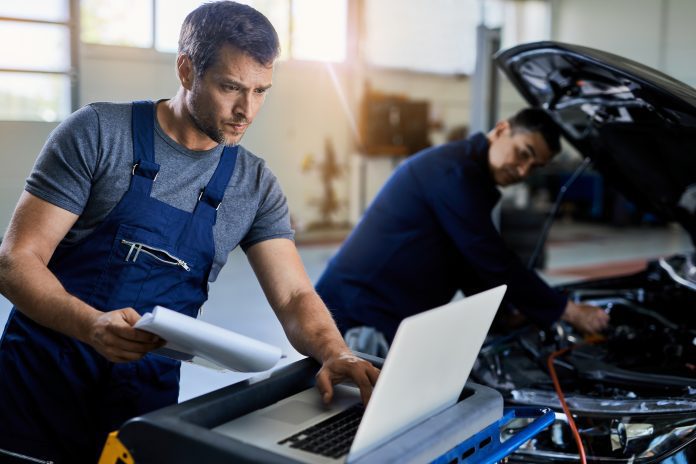The fixed ops department is the lifeblood of most dealerships. But this vital profit center continuously faces challenges from rising customer expectations, ever-changing vehicle technology, and competitive pressures. Exploring optimization strategies is a logical approach to maintaining and boosting revenue.
Increasingly, dealers are harnessing the power of artificial intelligence (AI) for these efforts. These technologies can enhance the customer experience, streamline workflow, and ultimately improve the bottom line. Rather than talk about AI as some grandiose concept for fixed ops, let’s dive into specific areas ripe for implementation.
Personalizing the customer experience
One key advantage of AI is the ability to use this technology for an individualized customer experience. AI systems can analyze detailed data and develop personalized customer profiles that create tailored service recommendations. This proactive approach to maintenance is based on individual driving habits and vehicle conditions rather than generic scheduled maintenance tables.
Conversational AI solutions
AI chatbots and virtual assistants enable customers to get quick answers to common questions no matter the hour. These platforms are also ideal for scheduling service appointments. Conversational AI tools can deliver responsive and accurate support through natural language engagements. This self-service model is convenient for customers and frees up service advisors for other activities.
Proactive maintenance notifications
AI-powered predictive analytical tools offer a future look into customers’ service needs. Not only can you notify customers about upcoming maintenance work, but eventually, service departments can learn how many notifications turn into appointments, enabling more accurate staffing. The process starts with machine-learning algorithms that analyze telematics data to forecast ideal service timeframes. Customers appreciate the more personalized experience and the reduced risk of needing major repairs.
Smart recommendation systems
AI-powered systems can suggest tailored packages and upsell offers to customers based on individual maintenance history and vehicle data. This degree of personalization means service advisors don’t have to guess what to suggest, ensuring each customer receives the right offer at the right time.
Optimizing operations
AI has broad potential to maximize fixed ops processes and resources. Advanced analytics and automation can enhance productivity across the service and parts departments:
Inventory Management
Determining the right parts to stock and at what levels is a balancing act made simpler by demand forecasting algorithms. Some platforms can combine Internet of Things (IoT) sensors and artificial intelligence to get the job done. This is further aided by automated reordering once a low inventory threshold is reached, ensuring the steady availability of critical components.
Workforce optimization
AI-powered scheduling systems assess technician skills, parts requirements, and bay availability to maximize workload capabilities. These tools use algorithms to assign work depending on employee capability and availability. At the same time, service departments can seamlessly handle more vehicles faster while not overwhelming technicians.
Workflow automation
Paperwork is a necessary evil made less taxing through AI automation. Documentation tasks for inspections and estimates, for instance, can be handled through self-executing platforms. Invoicing is another example. The net result is back-office productivity and faster customer service.
New revenue streams
AI’s potential enables forward-thinking dealer executives and managers to look beyond traditional services for new revenue streams.
Predictive upsell recommendations
Artificial intelligence creates new opportunities for dealers to sell customized upsell offers based on owner preferences and vehicle requirements. Continuous data monitoring can lead to personalized packages highlighting the replacement of wear-and-tear parts like brakes, batteries, and tires. Predictive platforms can also lead to reminders about maintenance services. The goal is to eliminate the guesswork in upselling, leading to increased appointment conversion.
AI points to the way ahead
Staying competitive and boosting profitability are just some of the daily tasks required of today’s dealership executives and managers. While not a complete solution for these activities, AI is well-suited to help. Importantly, these technologies shouldn’t be thought of as isolated systems. But instead, as an integral component of your dealership’s approach to being more efficient and delivering better customer satisfaction. Similarly, AI must be introduced to employees as a resource for reducing mundane tasks, not as a replacement for anyone’s job.



